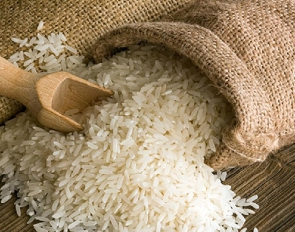 Government should have a deliberate financial service policy
Government should have a deliberate financial service policy
It was not surprising to hear rice produced locally run out of stocks in certain parts of the country in the wake of the “Eat Ghana Rice” campaign. In effect, Ghanaians are now enthused about the health benefits and have developed taste for locally produced rice.
Several complaints were made by individuals and organizations that went through “hell’ during the festive seasons in accessing the Ghana rice even at the major market centers and shops in the cities.
The “Eat Ghana Rice campaign” has gradually received an unquestionable welcome by Ghanaians which implies that, the rice value chain actors especially the producers and the processors will have to step up their game in ensuring that Ghana rice is available to people all year round.
However, access to finance has been the main challenge faced by the actors in increasing all year production of Ghana rice. Financial institutions that otherwise should have been providing concessionary financing to these actors are unwilling to do so and this poses a great threat to the domestic rice industry. Some banks attribute their unwillingness to give loans to farmers to the high default risk by the actors.
In 2018, the Ministry of Food and Agriculture reported annual rice consumption in Ghana at 1,200,000 metric tons. Out of that, about 420,000mt are produced locally, leaving a deficit of 600,000mt to import.
To address this situation, the government of Ghana should have a deliberate financial service policy, as a matter of urgency where the rice value chain actors can easily tap into and produce more in order to curtail the long term reliance on imported rice by urban consumers who account for 76 percent of the total imported rice consumption. It is important for Ghana to also look at establishing “rice restructuring plan” to boost production as done in countries like Thailand.
Nigeria is gradually weaning itself from rice importation because of the commitment from the government and the financial institutions in supporting the rice sector through the implementation of the “Anchor Borrowers Program” (ABP). Since its inception in 2015, the program has been designed by the Central Bank of Nigeria to encourage banks to make available cheap funds to smallholder farmers who produce more than 85 percent of total farm output in Nigeria.
The Central Bank of Nigeria provides loans to commercial banks at low interest rate for on-lending to Farmer Based Organizations. This concept has boosted paddy rice production in the country freeing farmers from the prevailing exorbitant commercial rate.
Recently, at the launch of the Southern Africa Agri Invest program in South Africa, the Southern Africa Development Community (SADC) hinted at the establishment of the Agricultural Development Fund (ADF) which will help finance all strategic projects for crops including rice within the block.
This announcement came as a result of the region’s one billion dollar annual rice import bill. Again, the Tanzanian government, through the commercial banks has been supporting the rice sector for years which have helped the industry achieved self-sufficiency.